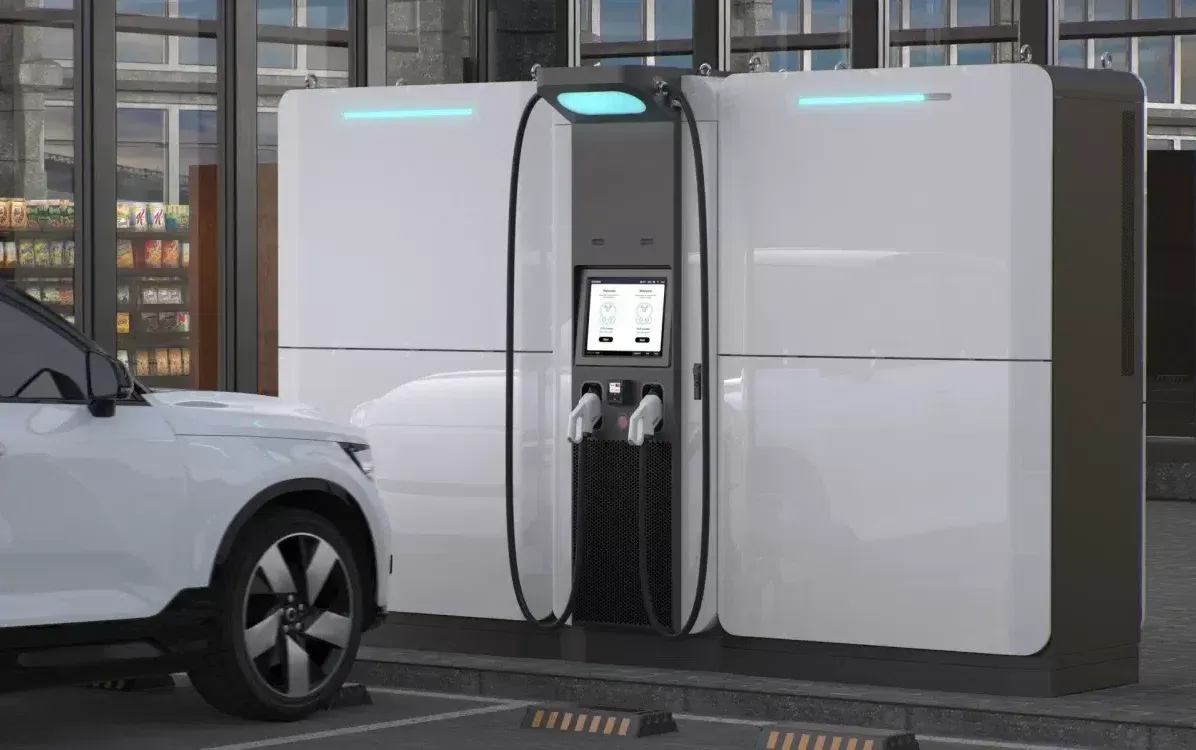Notifications

8 minutes, 8 seconds
-55 Views 0 Comments 0 Likes 0 Reviews

As a Professional EV Chargers Manufacturer in China, Topper Company Delivers Reliable Electric Vehicle Charging Stations and Comprehensive Solutions.
The real estate sector stands on the cusp of a profound transformation. According to a recent CBRE white paper, both commercial and residential real estate markets are projected to grow significantly in 2025. For developers, investors, and property managers, this growth represents not only opportunity but also a pressing challenge: how to differentiate properties in an increasingly competitive landscape.
One of the most powerful ways to gain a competitive edge is by embracing electric vehicle (EV) charging infrastructure. As the world pivots toward sustainable transportation, EV charging is rapidly shifting from a luxury to a necessity. Forward-thinking real estate professionals are integrating EV chargers into their properties to attract tenants, future-proof assets, and open new revenue streams.
The global push toward electrification is accelerating rapidly. With strong policy support from the U.S. government and ambitious electrification targets set by major automakers, the transition to EVs is no longer a matter of “if,” but “when.” Estimates indicate that the U.S. will need to invest approximately $87 billion in EV charging infrastructure by 2035 to support a full transition to electric passenger vehicles.
While the Bipartisan Infrastructure Bill has allocated $5 billion for EV charging, public sector efforts alone will not suffice. Much of the responsibility—and the opportunity—will rest with private industries, particularly real estate.
From office complexes and retail centers to multifamily housing and logistics parks, EV charging infrastructure can significantly boost a property's appeal. Beyond meeting tenant expectations, these stations drive long-term property value and generate additional income through usage fees and partnerships with charging networks.
Investing in EV infrastructure is more than following a trend—it is about maintaining relevance in a fast-evolving market. Key advantages for property owners and developers include:
Increased Property Value
Properties with EV charging stations are perceived as modern, sustainable, and future-ready. Studies show such buildings command higher rents and experience lower vacancy rates, especially in urban and suburban areas with rapid EV adoption.
Attracting and Retaining Tenants
Today’s renters and commercial tenants are increasingly eco-conscious. Offering EV charging aligns your property with sustainability goals and appeals to a broad demographic—from environmentally minded families to corporations with green mandates.
Meeting Regulatory Requirements
Many jurisdictions are introducing mandates requiring new developments to include EV charging. Early compliance can help avoid costly retrofits and penalties.
Access to Incentives and Tax Credits
Numerous federal, state, and local incentives are available to offset installation costs, improving ROI through tax deductions, rebates, and utility programs.
New Revenue Opportunities
Beyond tenant attraction, EV charging can be monetized directly through user fees, profit-sharing agreements with charging providers, or subscription models for tenants.
The commercial real estate sector is uniquely positioned to capitalize on the EV transition. Retail centers, business parks, and hospitality venues are ideal locations for Level 2 and DC fast chargers, which encourage longer visits and greater spending.
Retail: EV charging encourages customers to stay longer, increasing sales opportunities.
Office Buildings: Workplace charging supports corporate sustainability goals and aids in recruiting top talent.
Hotels and Resorts: On-site charging attracts EV-driving travelers and enhances guest satisfaction.
A transformative opportunity lies in fleet charging. As e-commerce grows and delivery fleets electrify, demand for medium- and heavy-duty EV charging hubs will surge. Industrial property owners near key transportation corridors can retrofit or build facilities to cater to this high-demand market.
Multifamily housing developers and managers can no longer ignore the EV revolution. Tenants expect reliable, convenient home charging—not just parking.
Benefits of residential EV charging include:
Competitive Differentiation: Properties with charging amenities stand out in listings and attract younger, tech-savvy renters.
Tenant Retention: Offering EV charging improves satisfaction and reduces turnover.
Flexible Billing: Usage-based or flat-rate plans allow transparent, manageable cost structures.
Planning ahead is essential. Retrofitting existing properties can be costly, whereas integrating EV infrastructure during new construction or renovations is more efficient and scalable. Smart, modular chargers simplify demand management, usage tracking, and maintenance.
Several critical factors must be evaluated:
Electrical Capacity and Grid Access: Assess existing infrastructure and potential upgrades; coordinate with utilities.
Charger Type and Quantity: Match charger levels (Level 1, Level 2, DC fast chargers) to user needs and budget.
Smart Charging Features: Consider load balancing, network connectivity, and remote management to optimize energy use.
Permits and Regulations: Comply with local codes, zoning, and safety regulations.
User Access and Payment Models: Determine if charging is tenant-exclusive or public, and select appropriate payment structures (pay-as-you-go, memberships, free access).
The EV revolution is reshaping industries—real estate included. As EV adoption accelerates, demand for accessible charging will grow exponentially. Investing in EV charging infrastructure today allows property owners and developers to capture market share, increase asset value, and demonstrate sustainability leadership.
Though the upfront investment may seem significant, the long-term rewards—tenant attraction, new revenue streams, and regulatory compliance—make EV charging a wise, strategic move. Those who embrace this shift early will thrive in tomorrow’s market.
The real estate industry has a unique opportunity to lead America’s transition to electric mobility. Whether managing commercial retail spaces, developing multifamily housing, or investing in industrial logistics hubs, EV charging infrastructure is a powerful lever for growth, innovation, and resilience.
As the infrastructure gap widens, early movers will reap the greatest benefits. EV charging stations are no longer a passing trend—they are a foundational element of sustainable, tech-enabled communities of the future.Know more about Google SEO Directory

